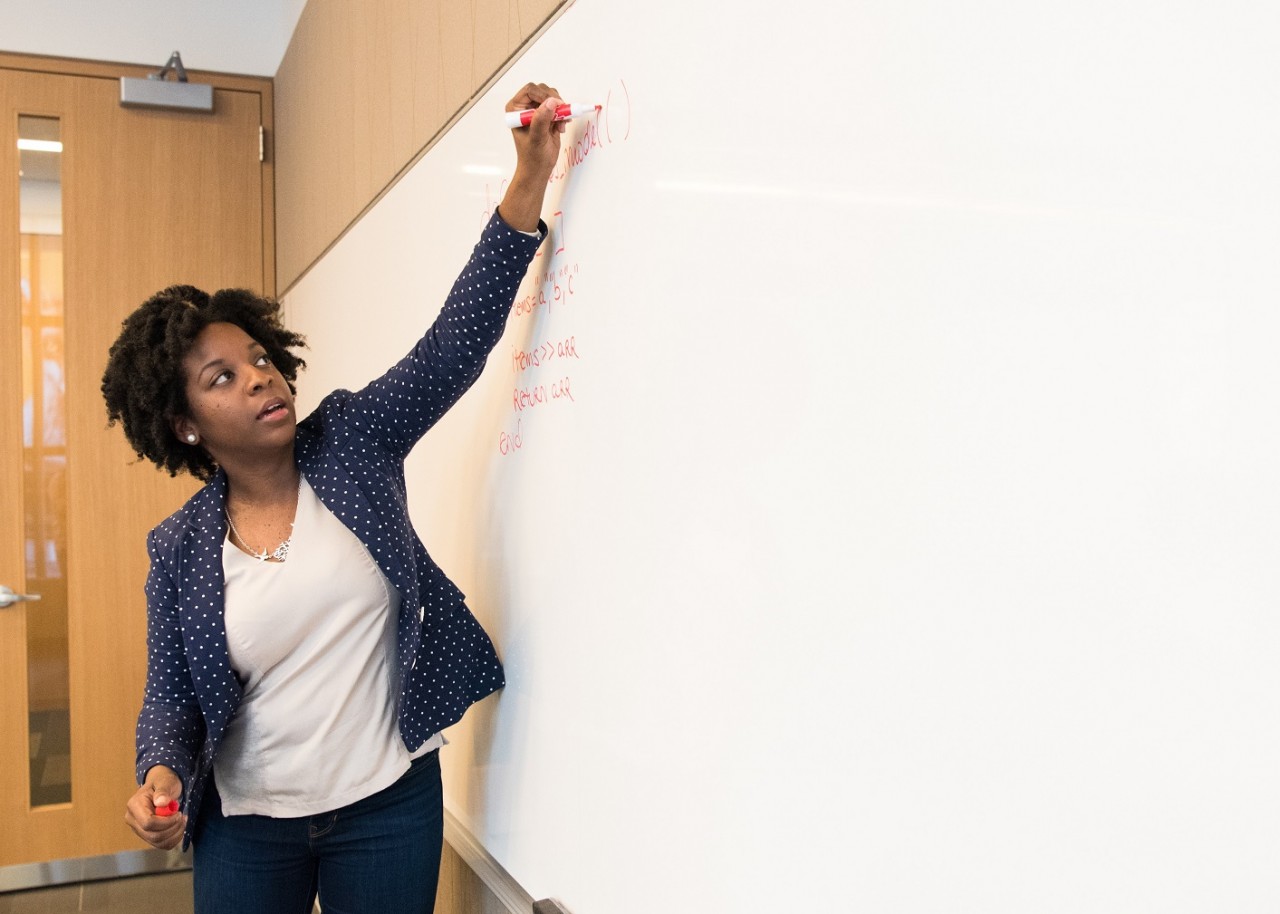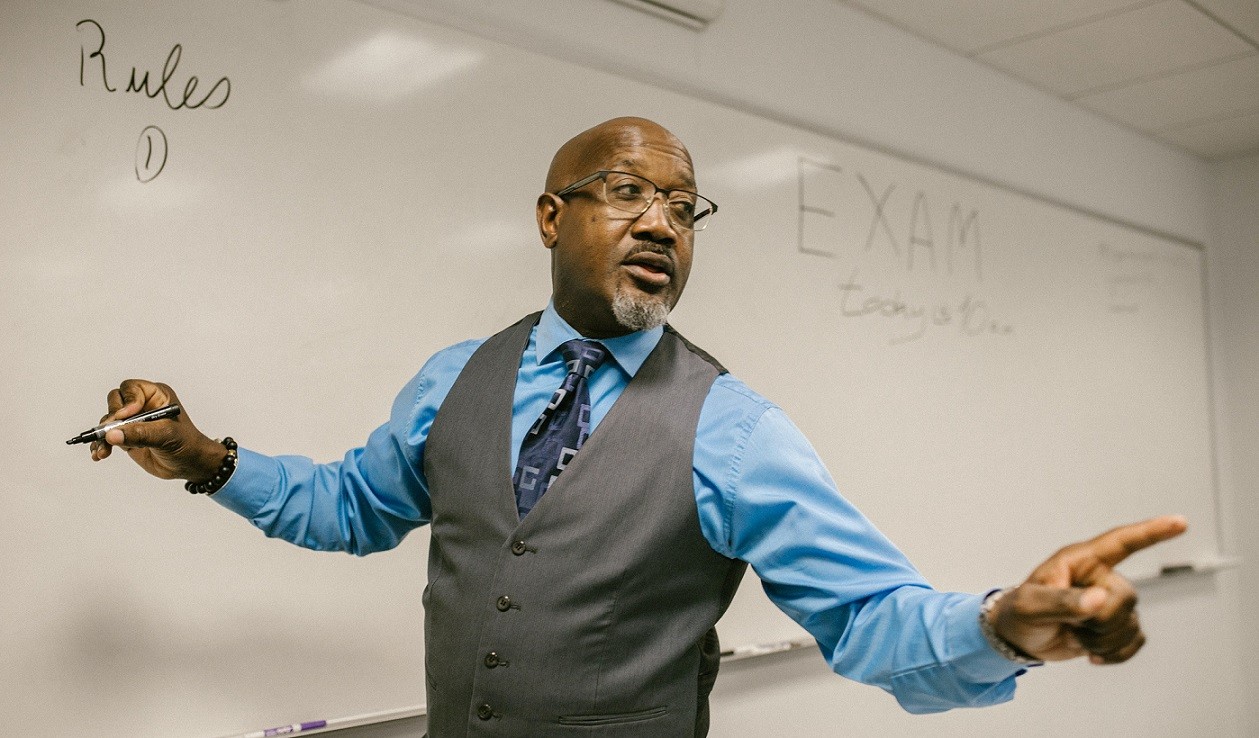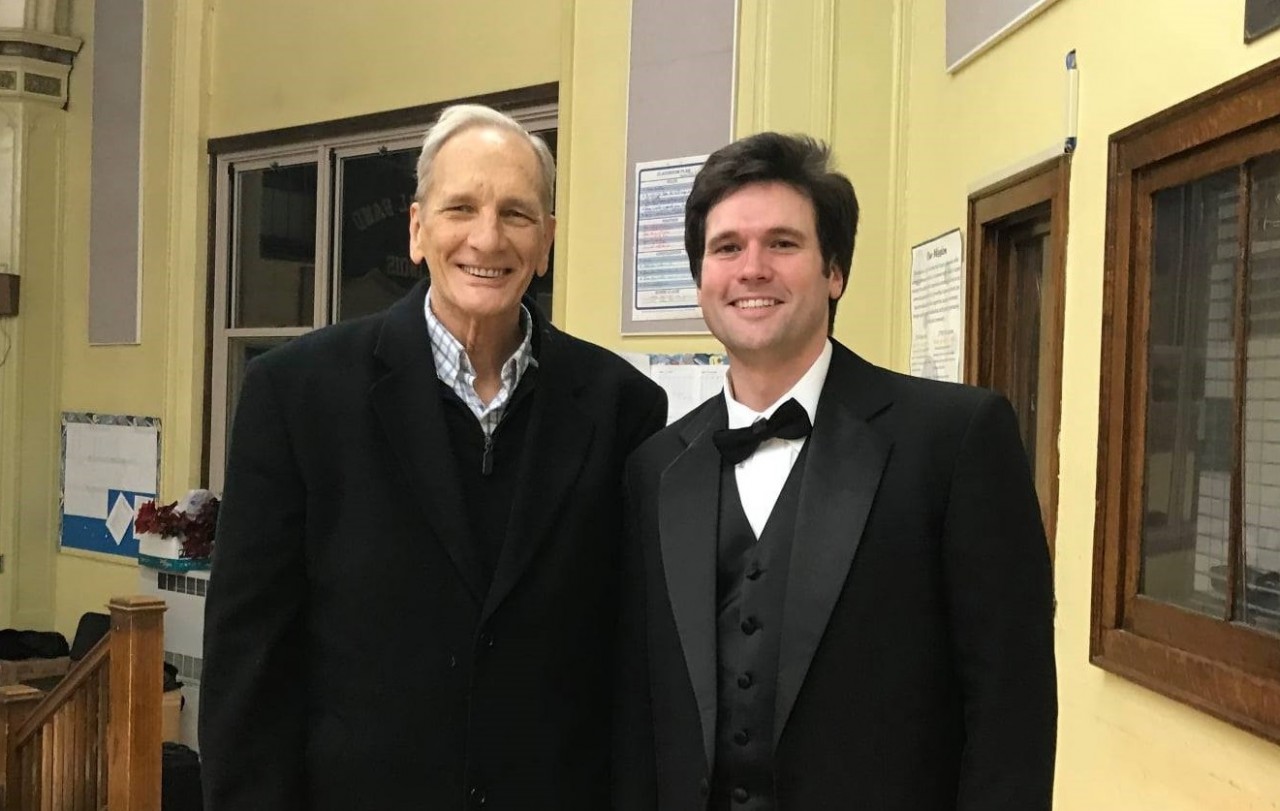Your Teacher Identity
As your career progresses, you’ll go through several stages that might include imitation, experimentation, doubt and actualization.
I had an identity crisis during my first few years of teaching. I had to wade through the stressors of a new job, getting an ensemble ready for a performance within days of school starting, and trying to balance a personal life. I had an idea of who I wanted to be, but I wasn’t exactly sure of who I was at that particular moment.
Looking back over 15 years of teaching, here are four major stages I experienced. These stages were vital as I started to form my teacher identity.
-
- Stage 1: Imitation
- Stage 2: Experimentation
- Stage 3: Doubt
- Stage 4: Self-Actualization
Stage 1: Imitation
 This initial stage can vary depending on your experiences. In your first few years, you might say things that your teachers told you. You might emulate their mannerisms when you conduct or count off a group. You might even dress like your mentors or adopt their sense of humor. None of these things are bad!
This initial stage can vary depending on your experiences. In your first few years, you might say things that your teachers told you. You might emulate their mannerisms when you conduct or count off a group. You might even dress like your mentors or adopt their sense of humor. None of these things are bad!
Why are we imitating our former music educators and implementing their style and substance into our teaching environment? Part of it is because it’s all we know, especially if we had a great musical experience as a student. The other part is because we are trying to survive those first few years! We would be foolish NOT to use the tools, sayings and procedures we learned.
Yes, we teach what we know, but how we were taught greatly influences how we teach. Did your music teacher bring in candy before every significant performance? Chances are, you are probably doing this. Did your teacher stress out before a concert? You may be doing this as well. If your teacher was calm, you’re probably calm, and if your director had certain sayings, you have probably used them as well.
There will always be parts of the imitation stage that you will keep in your teaching toolbox forever. Your justification and understanding of why may change, but we all know that when you find something that works, you keep doing it.
Stage 2: Experimentation
The early years of a music teacher’s career is like being thrown in the pool with floaties on. In stage 2, you climb out, dry yourself off and start dipping your toes in other areas. You attend more conferences, expand your network and begin trying different approaches to teaching and connecting with students. You start to think about how you can approach articulation for a particular piece. The knowledge is out there, but you start thinking, “how can I do this? What is my specific approach? What flavor can I add to my classroom environment and the experience I provide for students?”
Stage 2 is a time of growth and potential. You have just enough experience to be dangerous! During this period, you can get massively better at teaching after just one conversation with an experienced colleague or by trying two or three new approaches. You start to feel more comfortable as a person, and you are putting more of your personality into your teaching. You begin saying, “I’ve done this” instead of “this is what I might do.”
Stage 2 is long and can be a permanent stage for an educator, which is not a bad thing. Everyone is different, but I would expect most educators to begin entering stage 2 as early as the second semester of their first year of teaching to year two or three.
I like to think of stage 2 as a hybrid of imitation and experimentation delivered with your specific personality. This is the time when:
-
- You realize that you will never know without trial and error.
- You expand your horizons — what is uncomfortable for you? How might you get experience in these areas? This often relates to discipline, geographic locations, income level, race, etc. At the same time, advancing skills in one area can help you approach mastery; then, you can transfer these skills over to other areas.
- Mastery and tunnel vision can be important. But if things change, can you adapt?
From stage 2, you can go in two directions.
Stage 3: Doubt
You get through year one. It was a whirlwind, but you did it. During year two, you gained experience, became familiar with your system and made some mistakes. Things get better.
 Then, some doubts set in. You may have had some doubts about your career initially, but in this potential stage, the doubts build. You may think:
Then, some doubts set in. You may have had some doubts about your career initially, but in this potential stage, the doubts build. You may think:
-
- Is this really for me?
- Is this job important?
- Why does it seem like it’s easier for others?
- Why don’t my kids sound like other groups?
- I’ll never be like my teacher.
- Education is changing — can I keep up?
- This isn’t what I signed up for.
- I’ve tried everything, and nothing is working.
Doubt is not bad! However, the answers to some of these questions may not be what you want to hear. Remember, a lot of good things can come out of doubt if managed well. But dealing with doubt can be a grind.
Getting stuck in this stage long-term can be damaging and may lead to extreme measures. You might see that certain parts of what you do may not line up with your experience. You might go back to stage 1 and do what your teachers did, but it no longer works. You may find that your current situation is truly out of your control. Your options may be to accept and adapt or find a position at another school.
Sometimes we don’t realize that we’re trying to put square pegs in round holes. I tried to teach like my teacher in a setting much different than my school experience. This was frustrating for everyone. Then I tried to teach like him in the environment he taught in. This also did not go well and was a source of extreme frustration. The reality was that while I could certainly take cues from him, I was not him.
Stage 4: Self-Actualization
 Stage 4 is a stage of confidence. It is not an arrival stage; we enter into it as we grow to know our strengths and weaknesses better, and we begin to understand how we operate.
Stage 4 is a stage of confidence. It is not an arrival stage; we enter into it as we grow to know our strengths and weaknesses better, and we begin to understand how we operate.
We can work in this stage in tandem with stage 2, with a little bit of stage 1 occasionally appearing.
For me, realizations set in during this stage. I always wanted to be just like my teachers, but I’m not them. I’m the sum of them, combined with who I was as a person.
In short, I found that experiences + imitation + experimentation could equal actualization.
Disclaimer: I cannot speak to anyone older and more experienced than me, but I believe that anyone can go back to previous stages at almost any time and shift in and out of all stages continuously.
Stage 5: ?
I don’t know what’s next. My retirement year is 2038, so I’ll let you know when I find out.
The idea is not to be 100% stagnant at any stage. I certainly have a goal to live in the actualization stage, but I know that I have to leave this “house” every once in a while to see what else is out there. At the same time, living in a constant state of imitation may restrict an authentic sense of satisfaction and autonomy.
The intention is not to create the perfect teacher; it’s to continually identify weaknesses that we can strengthen for a more fulfilling teaching career.
Finding Your Teacher Identity
I had a particular goal since I was 14. I wanted to be the band director at my alma mater. But it was important to find out what else was out there for me. It was essential to confirm that this was what I wanted.
 I eventually ended up back where I started at Joliet Central High School, but not before making a few stops along the way. Opportunities knock at various points in our career, and saying “yes” to these small adventures will always give you experience and wisdom (but be careful to make decisions in your best interest).
I eventually ended up back where I started at Joliet Central High School, but not before making a few stops along the way. Opportunities knock at various points in our career, and saying “yes” to these small adventures will always give you experience and wisdom (but be careful to make decisions in your best interest).
One of the reasons I wanted to teach at my alma mater was Ted Lega, my high school band director, who passed away in 2021 — a huge loss for me. I have many other mentors, but this important mentor is gone. Recently, one of my students told me that I was their Mr. Lega. I wasn’t ready for this because I still needed my own Mr. Lega.
A large part of my identity was being his student and carrying on his work. That’s still a large part of me, but I’m also the sum of my other mentors and teachers, my experiences, successes, failures, opinions, beliefs, ideals and shortcomings.
So, what will your teacher identity look like? I can’t answer that for you. No one can. You must create your own unique identity.
As for me, well, it took a while to be content with my teacher identity, but it starts with being persistent, insistent and consistent. It’s adapting to the current needs of my students and music education without losing who I am as a person. My identity will likely evolve as my teaching career continues, but for now, I’m happy with my path.















